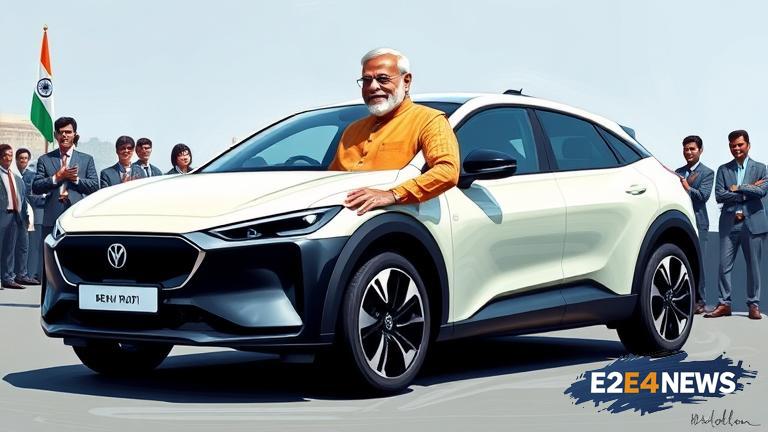In a major boost to India’s electric vehicle (EV) industry, Prime Minister Narendra Modi has flagged off the export of made-in-India battery EVs to over 100 countries. The move is expected to give a significant push to the country’s EV sector, which has been growing rapidly in recent years. The export of EVs is a major milestone in India’s journey towards becoming a global hub for electric vehicles. The country has been working towards promoting the adoption of EVs, with the government setting a target of having at least 30% of new vehicle sales as electric by 2030. The export of EVs will not only help reduce the country’s dependence on fossil fuels but also create new job opportunities and stimulate economic growth. The made-in-India battery EVs that will be exported are expected to be in high demand globally, given their affordability and quality. The EVs will be exported to countries in Europe, Asia, Africa, and the Americas, among others. The export of EVs is also expected to help India reduce its carbon footprint and contribute to the global efforts to combat climate change. The government has been providing incentives and subsidies to encourage the adoption of EVs, including the Faster Adoption and Manufacturing of Electric Vehicles (FAME) scheme. The scheme provides subsidies to buyers of EVs, as well as incentives to manufacturers to set up EV production facilities in the country. The export of EVs is also expected to help India become a major player in the global EV market, which is expected to reach $1.4 trillion by 2027. The country has already seen significant investment in the EV sector, with companies such as Tata Motors, Mahindra & Mahindra, and Hyundai investing heavily in EV manufacturing and research and development. The export of EVs will also help India reduce its trade deficit, as the country currently imports a significant portion of its vehicles. The made-in-India battery EVs that will be exported are expected to be priced competitively, making them an attractive option for buyers in other countries. The EVs will also be equipped with advanced technology, including fast charging and long-range capabilities. The export of EVs is a major achievement for India’s automotive industry, which has been working towards becoming a global hub for vehicle manufacturing. The country has a long history of manufacturing vehicles, with companies such as Tata Motors and Mahindra & Mahindra having been in operation for decades. The export of EVs will also help India promote its brand globally, with the ‘Made in India’ tag becoming synonymous with quality and affordability. The government has also been working towards creating a supportive ecosystem for EVs, including the development of charging infrastructure and the creation of EV-friendly policies. The export of EVs is expected to create new opportunities for Indian companies, including startups and small and medium-sized enterprises (SMEs). The move is also expected to help India become a major player in the global EV supply chain, with the country having a significant presence in the production of EV components such as batteries and motors. Overall, the export of made-in-India battery EVs to over 100 countries is a significant milestone in India’s electric vehicle revolution, and is expected to have a major impact on the country’s economy and environment.
